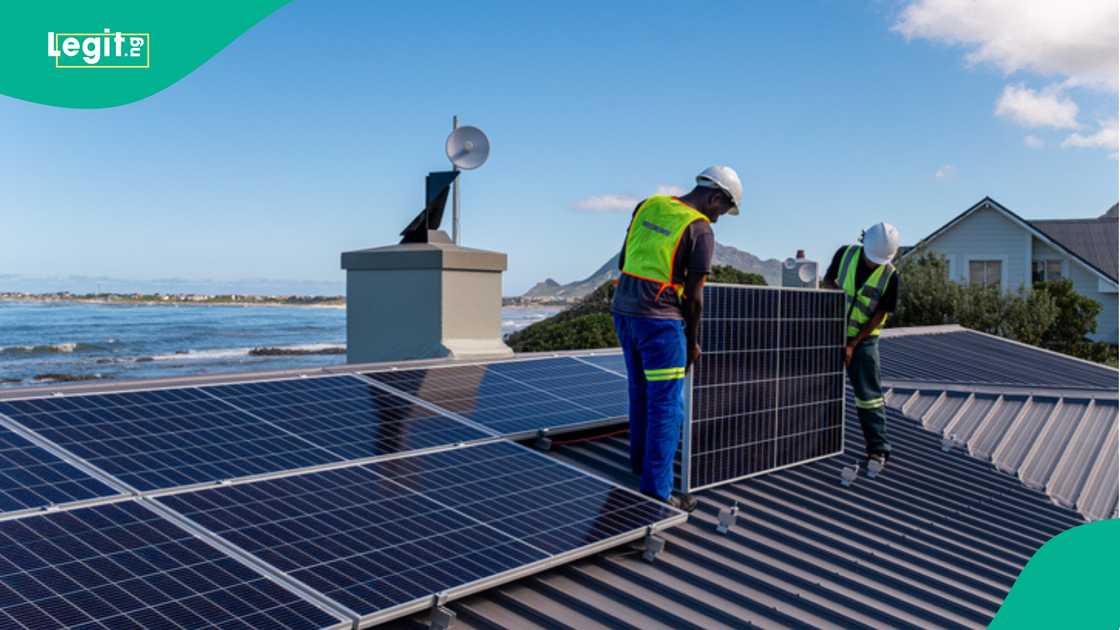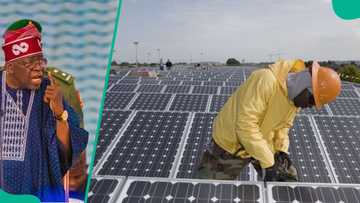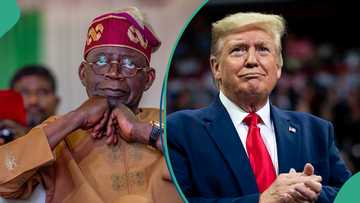CPPE Reacts as FG Insists on Banning Solar Panel Import in Nigeria
- Concerns have been raised by the government's plan to ban the importing of solar panels
- The CPPE opined that the action will have an especially high welfare cost for Nigerians
- Instead, it suggested that the government provide significant incentives to investment in the solar panel sector
CHECK OUT: How to Start Earning with Copywriting in Just 7 Days – Even if You’re a Complete Beginner
Legit.ng journalist Zainab Iwayemi has 5-year-experience covering the Economy, Technology, and Capital Market.
The government's proposal to prohibit the importation of solar panels in an effort to encourage domestic manufacturing of the panels has raised concerns at the Centre for the Promotion of Private Enterprise (CPPE).

Source: UGC
In a report, the CPPE strongly recommended against this policy proposal.
A ban on the importing of solar panels would have an especially high welfare cost, it added, because the price of buying solar solutions would rise.
Solution
Due to the severe energy crisis and clear domestic solar panel production capacity restrictions, the CPPE feels that Nigeria is not prepared for a restriction on solar panel imports.
According to the entreprise, the government could instead offer investors in the solar panel industry substantial fiscal and financial incentives, such as tax exemptions, preferential long-term financing with single-digit interest rates, and exemptions from tariffs on intermediate goods.
The CPPE asks the government to reduce import duties to 5% on inverters, batteries, and wind turbines. This would lead to significant increases in economic production, energy security, and access to energy.
Additionally, it would reduce the demand for electricity from the national grid. Battery and inverter prices are rather high right now.
It added,
“Some of the subsidies given in other climes to promote investment in renewable energy solutions includes investment tax credits, production tax credits, financial grants, power purchase agreements, concessionary financing and support from multilateral institutions.
“Meanwhile, it is also important to clarify that Executive Order 5, which the minister alluded to, is a procurement policy which directs the MDAs to give preference to Nigerian service providers in their procurement process for goods and services. It is clearly different from a trade policy measure which has wider economic implications and requires a more rigorous study before policy pronouncements are made.”

Read also
N10bn solar power project: "The White House uses it," Presidency justifies move with trending video
FG insists on ending solar panel imports
Amid the crisis in Nigeria’s power sector, the importation of photovoltaic solar panels has risen in recent years, now amounting to almost N200 billion annually.
However, the federal government has insisted on ending the importation of solar panels as a means to save the much-needed foreign exchange and reduce pressure on the naira.
The government is instead looking in a different direction and has recently revealed what will be the alternative to solar panel imports.
Solar panel factory opens in Lagos
Legit.ng reported that LPV Technologies, a Nigerian solar energy company, has opened a new solar panel factory in Lagos. The company is urging the government to ban the importation of solar panels to encourage local production.
Nigeria struggles with energy shortages, as only about 60% of the country has access to electricity. Solar power is seen as a good alternative, especially for rural areas.
Yinka Adelodun, the Executive Director of LPV Technologies, said the new facility was built to tackle major problems in the renewable energy sector, such as supply chain delays and over-reliance on imported panels.
PAY ATTENTION: Сheck out news that is picked exactly for YOU ➡️ find the “Recommended for you” block on the home page and enjoy!
Source: Legit.ng




